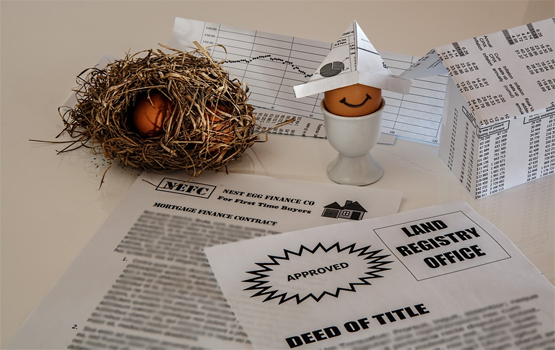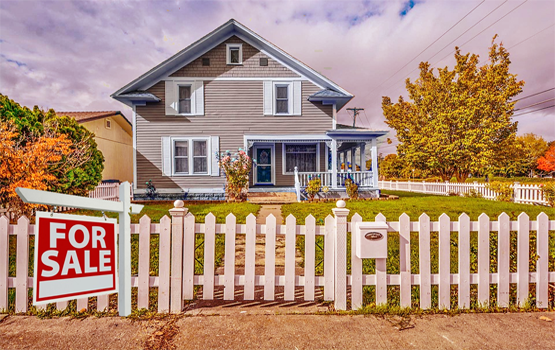Don't Forget Closing Costs When Buying A Home
The day you actually become the owner of a house is called "closing day" or "possession day". On closing day the lender will provide the mortgage money to your lawyer and you will have to provide your lawyer with the balance of the funds required to close the deal. There are also some up-front costs you should keep in mind and plan ahead to cover them. These various charges can add up, and for the most part they are all legally required payments in buying a property. We put most of the associated costs under the term "closing costs” to help you calculate and cover required payments and make sure things go smoothly. Fees vary greatly by location and, of course, are relative to your house price. As a rule of thumb, count on between 1.5% to 4% of a home's selling price plus your down payment.
Here is a list of most of your major closing costs:
Appraisal Fee: Your mortgage lender may require that the property be appraised at your expense. An appraisal is an estimate of the value of the property to determine whether the selling price is reasonable for the market. A professional appraiser's fee is usually between $300 and $400.
Deposit: This is part of your down payment and must be paid when you make an Offer to Purchase the property. The cost varies depending on the area and value of the home. Deposit is part of your down payment.
Down Payment: This is at least 5% of the purchase price for a high-ratio mortgage and at least 20% of the purchase price is usually required for a conventional mortgage.
Estoppel Fee (if applicable): This applies if you are buying a condominium or strata unit. Estimated cost between $100 and $150.
Extra Charges: You may also be required to pay the costs of such things as heating oil in the tank, property tax, prepaid utility costs or other prepaid costs incurred by the seller, but included with the house, prior to the closing day.
GST/HST: This tax varies by province and type of home; it is payable to some degree on the purchase price on all new homes, although partial rebates are available on the purchase of most homes, depending on province. A resale residential home is usually exempt from GST/HST. Various other closing fees, however, do involve payment of GST/HST.
Home Inspection Fee: A home inspection is a report on the condition of the home and may cost over $400, depending on the complexities of the inspection. Basic inspections on most houses are usually in the $400 to $600 range.
Land Registration Fees: They are sometimes called a Land Transfer Tax, Deed Registration Fee or Property Purchases Tax. Anyone buying property in Ontario must pay a land transfer tax. The cost is a percentage of the property's purchase price and may vary. It usually runs between 0.5 to two per cent of the home's purchase price, depending on that price.
Legal Fees and Disbursements: A lawyer is an essential part of your professional home buying team, the work provided involves fees. Most legal fees depend on the complexity of the transaction. Your lawyer/notary will also bill you direct cost to check on the legal status of your property. Shop around, ask for an estimate beforehand so you know what to expect.
Mortgage Loan Insurance Application Fee and Premium: If you need a high ratio mortgage, which is any mortgage with less than 20 per cent of the down payment, you may need mortgage loan insurance. To get this insurance, you may be asked to pay the required application fee and premium. Lender can add mortgage loan insurance to your mortgage and include it in your monthly payments or you can pay it in full before closing.
Mortgage Broker's Fee: A mortgage broker may charge a fee to set up a mortgage for you. In some cases the fee may be included with the legal fees if your lawyer arranges the mortgage, or included in the lender's fees if you deal directly with a lender such as a bank.
Property Insurance: This insurance covers the replacement value of your home and its contents. Most mortgage lenders will require proof that you have this insurance before processing a mortgage.
Survey or Certificate of Location Cost: The mortgage lender may ask for an up-to-date survey or certificate of location prior to finalizing the mortgage loan. If the seller does not have one or does not agree to get one, you will have to pay for it yourself. Estimated cost between $1,000 and $2,000.
Title Insurance: This coverage (usually suggested by lawyer or lender) protects you from title complications and cover loss caused by defects of title to the property, including real estate fraud. Estimated cost upwards of $400.
Water Quality Inspection: This is inspection of the quality of the water. If the home has a well, the water has to be tested to ensure that the water supply is adequate and the water is potable. If the seller doesn't have one or does not agree to get one, you will have to pay for it yourself.
OTHER COSTS
Beside "closing costs", there are some other costs to consider:
Appliances: Check out first to see what comes with the house or request some in your Offer to Purchase the property.
Condominium Fees (if applicable): If you are buying condo unit, you may have to pay the initial payment for these monthly fees.
Decorating Materials: Paint, flooring, wallpaper and tools for redecorating.
Hand Tools/Equipment: You may need some hand tools, gardening equipment, snow clearing equipment or tools for your new home.
Hook-ups: There may be hook-up charges and deposits required for appliances and services such as telephone, TV cable, hydro and other utilities.
Moving Costs: Don't forget the basic costs involved in moving from your old place into your new home, particularly if you use a professional moving company. Just remember to add them to your financial plan when saving to buy a home.
Renovations and Repairs: You may need to do some renovation and/or repairs in your new home.
Window Treatments: Check out first to see what comes with the house.
HELPFUL INFORMATION:
- Buying a Home of Your Own
- Protect Your Best Interest - Hire Your Own Realtor
- Finding a Home That's Right for You
- Describe Home You Want to Buy
- Type of Home to Buy
- Buying a Home: What You Can Afford
- Working With a Realtor
- Using an RRSP for Down Payment
- Your Privacy and the Real Estate Transaction
- How to Save for a Down Payment
- Calculators
- Mortgage Insurance
- Real Estate Info
Mortgage Info
Regardless of how certain you are that you will get mortgage, it is always good idea to get pre-approved from the mortgage lender of your choice. This will officially address any questions about your eligibility, rate, terms and it will enable you to better negotiate for the property of your choice.
Read more...
Buyer Info
Since choosing a right property to buy starts with needs and desires and finishes with a sizable portion of your earnings used for paying for it, it's important to ensure that the property you choose both meets your needs and is a good "fit" with your financial situation.
Read more...
YOUR CREDIT SCORE
Credit scoring model seeks to quantify how likely the consumers are to pay off their debt without being late. The more your credit file demonstrates that you pay your debt on time, the more desirable you become as a potential customer. The higher the client's score is, the less likely they are to default on their loan.
Read more...
Seller Info
If you currently own property and are thinking of placing it on the market, get informed about preparing your home for sale, pricing your property appropriately, marketing it effectively and learn everything you can about real estate sale process so you can maximize your chance of a profitable sale by avoiding costly marketing mistakes.
Read more...



